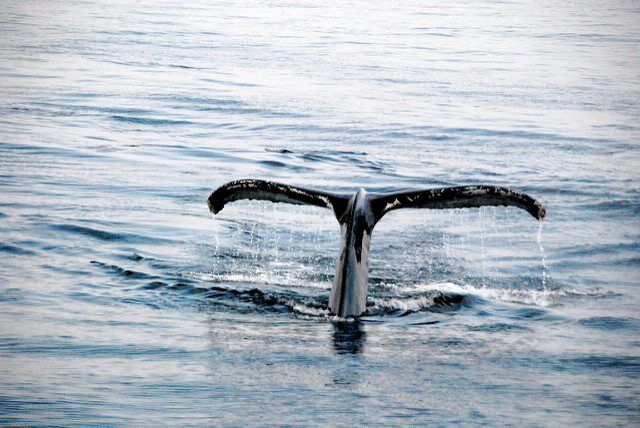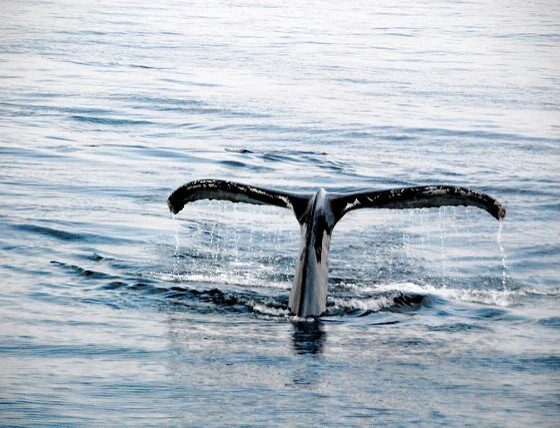

Environment
How Whale Watching Is Boosting Endangered Populations
Environmentalism and vacationing don’t typically go hand in hand, and in many cases, activities we enjoy during our leisure time can be directly harmful to the environment. When it comes to caring for our oceans, however, there’s one recreational activity that’s brought about great ecological benefits in recent years: whale watching.
How is whale watching contributing to the health of our oceans? After all, at first glance it doesn’t seem like there’s much going on there; you’ve got some excited people on a boat hoping that whales will show up. When we dig a little deeper, however, the beneficial aspects of the activity become clear.
An Inside Look At Whale Watching
People who have been whale watching love to describe the excitement of the experience. Out on the water, armed with cameras, you can never be sure if or when a whale will surface. When it happens, though, there’s great excitement as these enormous, mysterious creatures engulf the boat in mist as they rise to the surface or leap from the water. The enormity of seeing a whale can only be described as awesome in the original sense of the word – but the value of the experience doesn’t end when you disembark.
Whale Watching’s Ties To Conservation
Whale watching has been one of the fastest growing types of nature-related tourism since the 1950s and now has 87 participating nations and territories, 34 of which are members of the International Whaling Commission. These groups host over 9 million people each year, interested in exploring the world of whale watching, and a large percentage of profits from whale watching goes to research and habitat protection.
Another reason that whale watching is so beneficial is that many of the companies that run whale watching trips contribute valuable data about whale behavior, life cycles, and movements to scientific organizations. This allows scientists to allot more of their time and resources to developing solutions to issues like pollution and global warming that are impacting the whale population.
Getting Off The List
For those seeking concrete evidence that whale watching is beneficial to the health of our oceans, there’s no greater proof than the removal of 9 humpback whale groupings from the endangered species list; 5 other whale groups remain on the list due to insufficient population growth.
Humpback whales have been on the endangered species list since the 1970s, shortly after an international ban on commercial whaling went into effect. The whales were nearly hunted to extinction in the years before the ban, necessitating such extreme protections.
Eco-Friendly Tourism: Part Of A Larger Movement
What watchers today can expect unprecedented sightings in some areas, including pods of 15 to 20 whales in Pacific waters, but these nature lovers aren’t the only ones experiencing our oceans in new and exciting ways today. Rather, whale watching is part of a larger movement to encourage tourists to engage with the environment in respectful, mutually beneficial ways.
In Zanzibar, for example, tourists staying at the Cenizaro property The Residence can participate in dives developed by One Ocean. Visitors can see the many brilliant varieties of fish and plant life in the waters nearby, while One Ocean works with the Mnemba Island Conservation Area to protect that ecosystem. Similarly, those who stay in Zanzibar’s protected Menai Bay are charged a tax on all water activities, with the funds allotted to caring for the surrounding marine life.
Too often, our actions are grouped into one of two categories – either we are actively engaged in environmentalist activity to save a planet in distress or we’re participating in leisure activities that are ruining our Earth. The reality, however, is that the division isn’t stark and you can care for the planet while still leading an exciting and enjoyable life.


 Environment12 months ago
Environment12 months agoAre Polymer Banknotes: an Eco-Friendly Trend or a Groundswell?

 Features11 months ago
Features11 months agoEco-Friendly Cryptocurrencies: Sustainable Investment Choices

 Features12 months ago
Features12 months agoEco-Friendly Crypto Traders Must Find the Right Exchange

 Energy11 months ago
Energy11 months agoThe Growing Role of Solar Panels in Ireland’s Energy Future





























